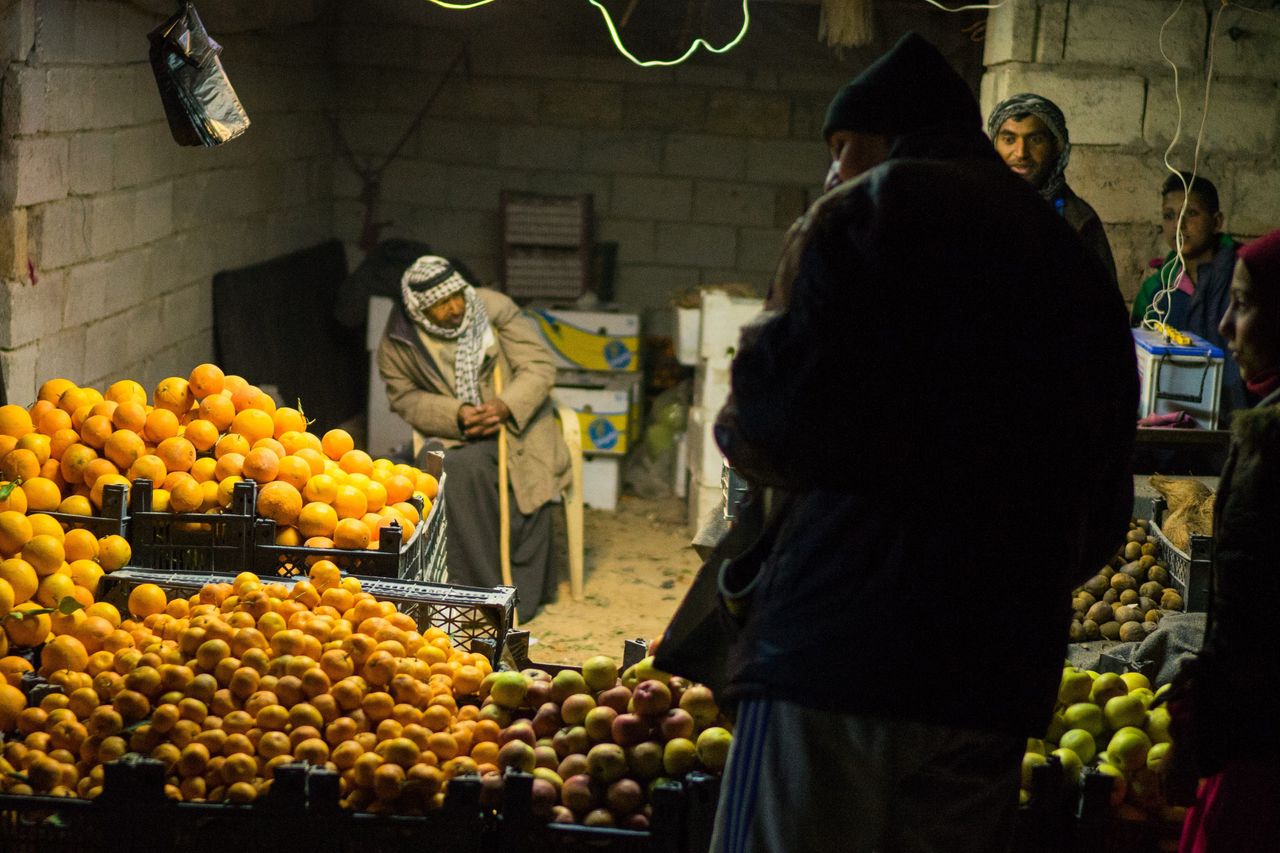
Internal refugees in Syria do not see any hope of returning home
It is difficult to feel the Christmas spirit in the Al-Sad camp.
The sun sets quickly and the temperature at night drops to only few degrees Celsius. The camp is in the desert, 200 kilometres from the 200,000-thousand-year-old city of Al-Hasakah, and 150 kilometres from the frontline with ISIS.
– I am very tired of all of this. I want to go home. Everybody dreams about it, not only me -says Kawsar.
She is 48 years old and she has ten children. Four months ago her family escaped from Deir ez-Zor, their hometown in eastern Syria by the Euphrates river.
There are forces of President Bashar al-Assad’s regime supported by Russia, the Syrian Democratic Forces supported by the United States and ISIS engaged in the fighting for the Deir ez-Zor province and its capital city. The fighting in the province is still going on. The Syrian Observatory for Human Rights based in Great Britain informed on January 1 that at least twelve people were killed, including five children, because of the air strikes (most likely of the coalition forces) on ISIS fighters. The number of civilian casualties during the fighting for the province approaches three thousand.
When I talk to Kawsar, a crowd quickly gathers around us.
– We forgot how to celebrate seven years ago – she says.
She means the beginning of the civil war in Syria in 2011. Over 400,000 people lost their lives and over half of the Syria’s population – 11 million people – had to leave their homes.
– We pray the war will end in 2018 and there will be peace in our country – says Kawsar.
The crowd that gathered around us agrees. Everybody dreams about the end of war. Kawsar is waiting for the moment when it is safe enough for her two sons to return home from Germany. However, she does not think that this will happen soon.
About 5pm Kawsar says she and her family are going to sleep. We talk near the temporary bazaar, which was built in the camp. According to the security services, 3243 families live in the camp, that is 18,134 people.
You can buy fruit and basic food products at the bazaar or eat made on-the-spot kebabs and falafels. Not everybody can afford it. Residents complain it is difficult to find a job in the camp. They are reliant on food received from the camp’s authorities and non-governmental organizations supporting it.
Husayn Suleiman is 29 years old and comes from the village of Tabija located near Deir es-Zor. He has a wife and two children. He was a policeman before the war, then he became an orderly.
– How can we celebrate? Eating canned food? – he asks rhetorically. – We will celebrate when we regain our country.
Most of food they get is canned – chicken mortadella for example.
Suleiman complains that neither the Syrian Democratic Forces nor foreign countries want to overthrow the regime of the President al-Assad, who is the main problem of the ongoing war.
– When the Americans wanted to overthrow Saddam Hussein in Iraq, they did it in a month. So why Assad has been a President for seven years now? After all, his regime is not stronger than Hussein’s – Suleiman asks further questions.
He wants answers, but he does not get them.
He knows he will not come back home soon. That is why he is worried about the future of his children, as there is no school in the camp.
– My son is seven years old. I am afraid that he will never know how to write his name -Suleiman says.
Therefore, he teaches his child how to write and read in Arabic.
Life in the camp stops a few minutes after twilight. It was dark and emptily at 9pm. The residents hid from the cold in their tents. They want New Year to bring them peace, but hardly anyone believes it will happen soon in Syria























